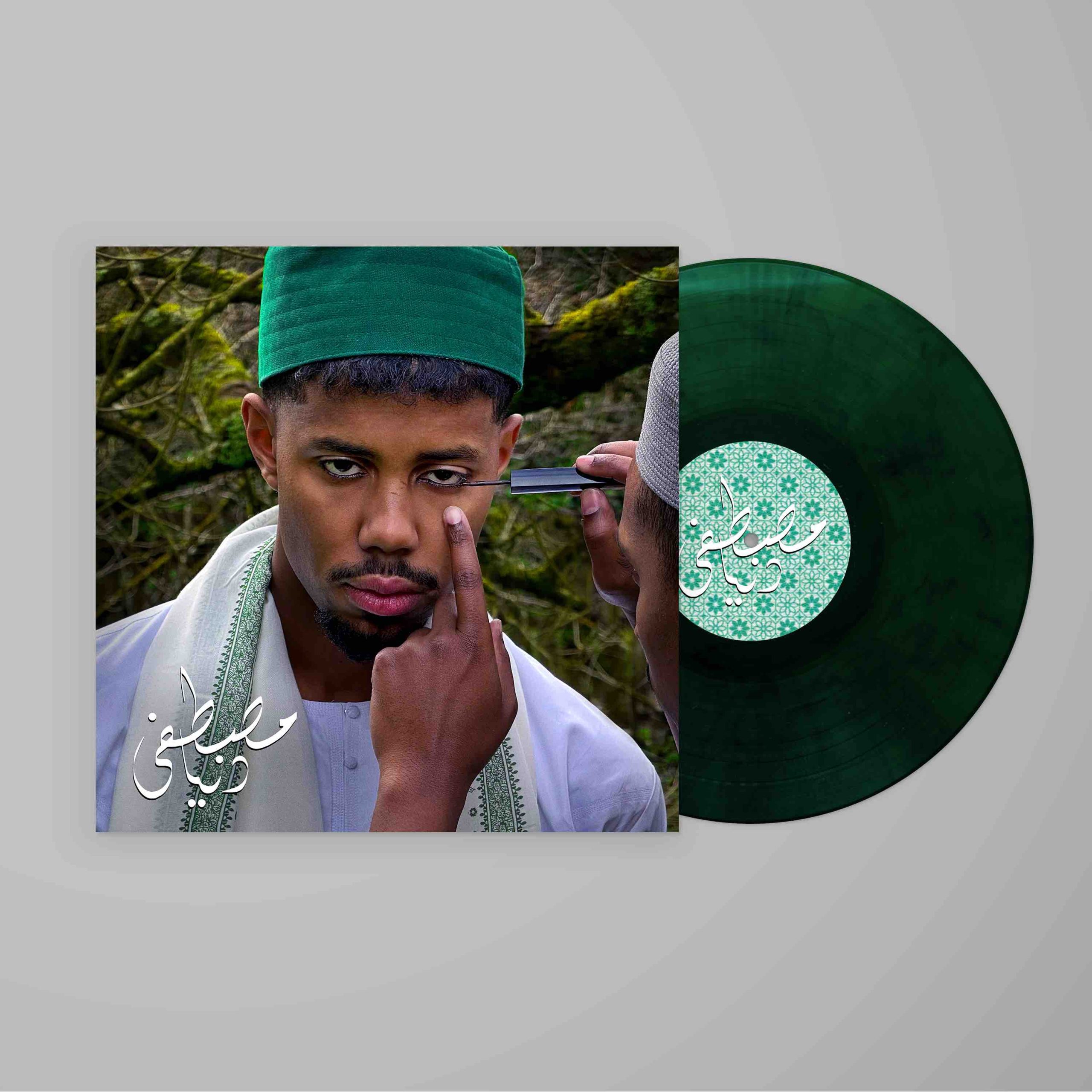Mustafa
Store
Dunya, the title of Mustafa’s masterfully crafted and breathtakingly tender full-length debut, roughly translates from Arabic to “the world in all its flaws.” It’s a lofty subject for a young songwriter, but as with every theme at the heart of the Sudanese-Canadian artist’s work—from religious devotion to childhood trauma, gang violence to romantic intimacy—he approaches it through a personal lens. “This record encapsulates so much of my life,” he explains of the expansive 12-song album. Blending genres and moods, weaving novelistic details into instantly memorable folk songs, he has crafted a record that feels like a series of personal breakthroughs, arriving one after the other.
The first thing that strikes you about Mustafa’s music has always been his writing: a simple, piercing tone that can make any story feel as raw and earnest as the words to a love song. With a hushed delivery that can silence his surroundings, Mustafa evolved swiftly from a child prodigy reciting poems throughout his native Toronto to a behind-the-scenes songwriting force for artists like the Weeknd, Camila Cabello, and Justin Bieber. On Dunya, he is a full-on auteur in his own right, and he is once again in incomparable company. The collaborators on his debut full-length include Aaron Dessner, Rosalía, Clairo, Nicolas Jaar, and more, alongside Mustafa’s longtime creative partner Simon Hessmann and his friend and confidant, Ramy Yousef, who served as a creative director for some of its striking visuals.
“I’m trying to preserve and celebrate the ordinary life in the hood,” Mustafa notes of his inspiration. Exploring his upbringing and trajectory onward, these songs are equally disarming in their simplicity and multilayered in their emotional breadth. In the highlight “SNL,” an acronym for “Street N*gga Lullaby,” Mustafa sings in heart-wrenching verse over what sounds like a campfire singalong, exposing the singular voice of a writer who cites both Future and Big Thief’s Adrianne Lenker among his chief influences. “Yelling ‘gang gang gang‘ in my room,” he sings in the chorus, “you sprayed me with perfume.” Many of his songs blend these tones with a fluidity that comes second nature to him: You can smell the perfume, imagine the scenery outside the window, breathlessly anticipate what happens next.
Expanding the boundaries of his autobiographical storytelling, Mustafa describes Dunya as a loving interrogation of his lifelong practice of Islam, which he refers to as “the longest, most peculiar relationship in my life.” In “I’ll Go Anywhere,” which features striking vocal accompaniment from Rosalía—an artist Mustafa admires for her own ability to blend various cultures and traditions into her forward-thinking pop music—he interpolates a melody his parents sang to him as a child. “God and faith are a bridge to my brother, to my family,” he says, alluding to the tragic death of his older brother, Mohamed Ahmed, in 2023. The arrangement also prominently features the oud, a Middle Eastern string instrument that folds seamlessly into the record’s unique, rich atmosphere.
Mustafa notes that “I’ll Go Anywhere” was among the first songs he wrote for the record, during a pivotal trip to Egypt in 2021. He describes the experience as a “microcosm of what I wanted to explore” on the record, addressing faith and family, home and departure. Many of the songs emerged in the form of conversations with friends and family, relationships he maintained through the years and others he lost. The latter subject is exemplified tragically by “Gaza Is Calling,” a sweeping ballad about a childhood friend in the occupied territory. “Every time I say your name/There’s a war that’s in the way,” he sings, before closing with a verse sung entirely in Arabic.
For Mustafa, these person-to-person connections are the core of his mission. Despite his ascent in mainstream and indie circles, he describes his deepest sense of accomplishment when he’s approached by young people for whom his work made a personal, spiritual impact. He understands it is precisely his vulnerability that allows listeners to connect. “Faith is a journey and the record is a journey—its incompleteness is intentional,” he explains, noting the moments of profound quiet and lingering questions that circle standouts like “Old Life.” From the heartfelt words of encouragement in “Imaan” to the haunting religious inquiries throughout “Name of God,” each song reveals a confident, distinctive voice that’s never sounded more poised for the masses. “I’m genuinely not trying to be a pop star,” he confesses with a laugh. “But I believe in the music, and I believe in the story I am telling.” Even when it sounds like he’s taking on the world, Mustafa is speaking only for himself: a story that he knows is just getting started.

